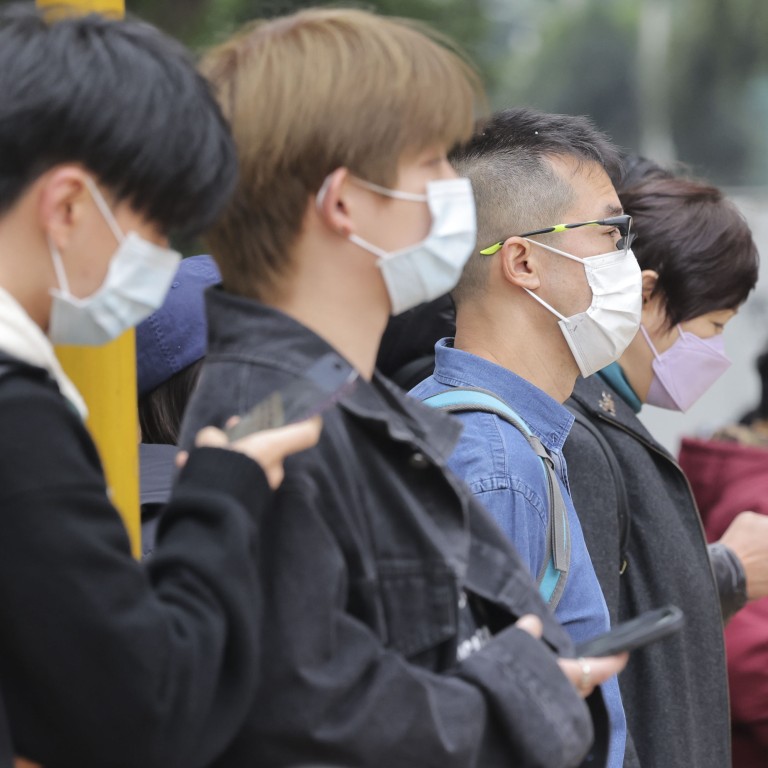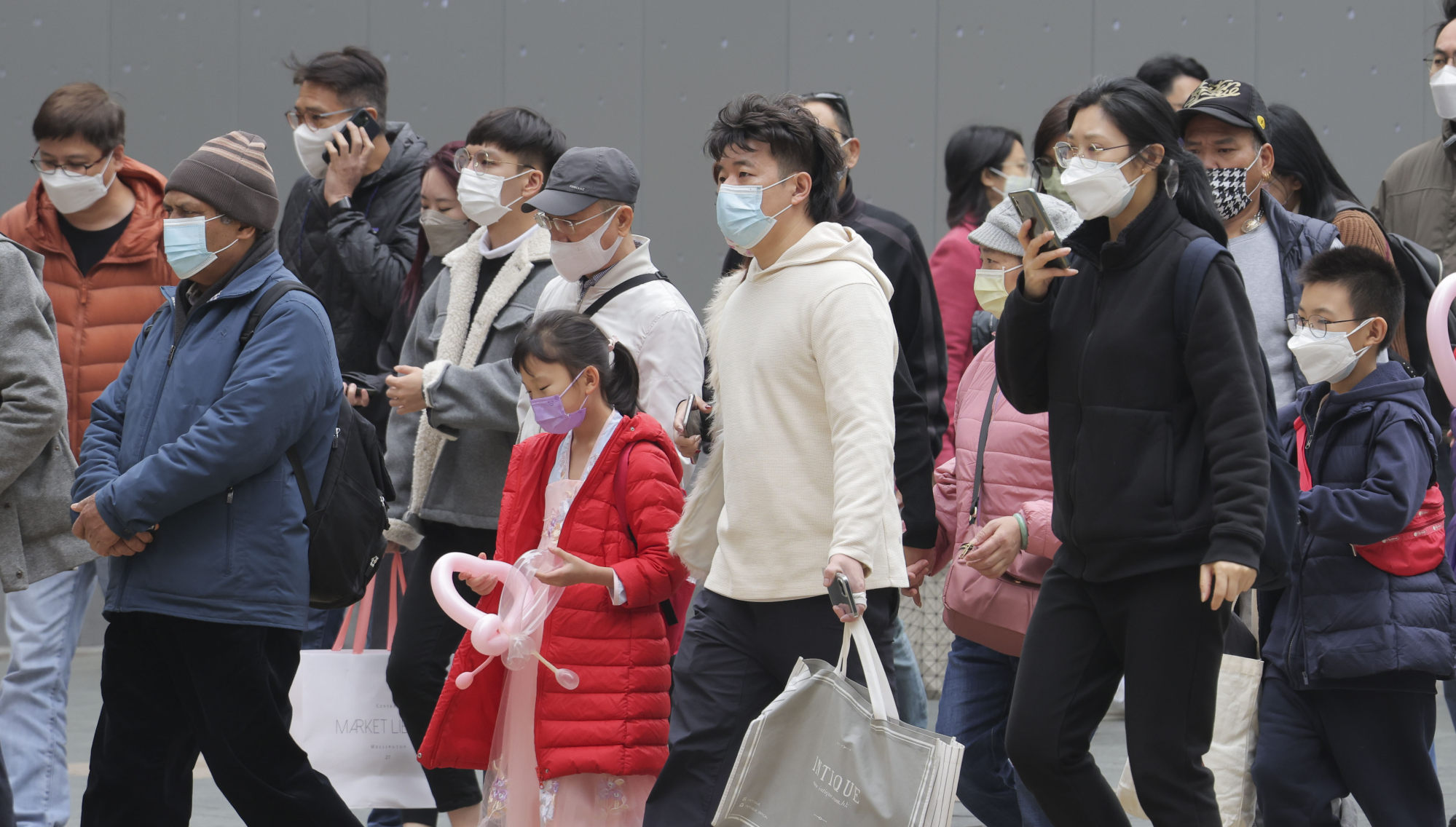
Coronavirus: lift mask mandate for outdoors after winter flu threat, Hong Kong government pandemic adviser urges
- Chinese University professor and government pandemic adviser David Hui says masks should still be worn on public transport, as well as in hospitals and care homes
- On the reopening of the border with mainland China, he says half a year still needed for pandemic situation up north to stabilise before easing existing travel measures
Hong Kong should consider dropping its mask mandate after winter for most outdoor venues while keeping the requirement for face coverings on public transport as well as in hospitals and care homes, a top government pandemic adviser has urged.
Chinese University respiratory medicine professor David Hui Shu-cheong on Saturday raised the suggestion on a radio programme, pointing out that the healthcare system should be protected for now from being overwhelmed by Covid-19 infections and seasonal flu cases.
His comments were in line with South Korea’s announcement a day earlier to lift its mask rules for most places, the latest Asian country to ease such measures.
Hong Kong students can take masks off while exercising for first time since 2021
“Shedding the mask mandate can be considered after winter if the epidemic situation continues to stabilise. But it doesn’t mean completely ditching face coverings,” said Hui, who has been advising authorities on pandemic matters since Covid-19 hit the city.
He said once the mask mandate was lifted, people should still use face coverings at “high-risk venues” such as on public transport, in hospitals, clinics and care homes, following in the footsteps of South Korea and Singapore.
City leader John Lee Ka-chiu had said he aimed to remove mask rules in March at the earliest if there was no rebound in cases.

Agreeing with the government, Hui on Saturday said the mask mandate should stay during the influenza season, citing “serious” outbreaks recently in Europe and the United States that had drawn attention from the World Health Organization.
“Unlike in previous years, Hong Kong experienced no seasonal influenza outbreaks from February 2020 when people started using facial coverings because of Covid-19,” he said.
“If we ditch the mask mandate early, the jump in infections triggered by flu or other respiratory diseases could overburden the healthcare system.”

In Hong Kong, the wearing of masks was made compulsory in July 2020, with police issuing on-the-spot fines of HK$5,000 (US$639) to people who fail to comply.
Other rules still in place include pre-departure polymerase chain reaction (PCR) tests for cross-border travellers. Long queues were seen at certain screening centres across the city ahead of the Lunar New Year holiday.
There were about 77,000 available spots at testing centres on Saturday and 100,000 for Sunday, the government said. Seven of the 85 facilities have reached their daily capacity and will not accept walk-ins on Saturday.
More than 40,000 visitors from mainland China to Hong Kong since border rules eased
Asked if Hong Kong could soon drop the tests to facilitate more residents going north, Hui said the move could take half a year for the mainland to build up a “strong hybrid immunity” against the virus.
“Outbreaks on the mainland came much later than in Hong Kong … and in some regions, infections have not peaked,” he warned. “The Spring Festival travel rush may speed up the spread of Covid-19 to different provinces.”
Hong Kong bosses welcome axing of Covid isolation, want action to revive tourism
Mainland China’s latest Covid wave has been dominated by Omicron subvariants BA.5.2 and BF.7. Hui said authorities needed to monitor how another subvariant XBB.1.5 and reinfections might affect the situation across the border.
The central government stopped releasing daily case numbers on December 25, after it downgraded Covid-19 from its top infectious diseases category. A recent Peking University study estimated some 900 million people had been infected with the virus up to January 11 – or 64 per cent of the population.
On Saturday, Hong Kong reported 3,507 coronavirus infections, 87 of which were imported, and 29 more deaths. The city’s overall tally stands at 2,855,317 cases and 13,081 related fatalities.
From January 30, health authorities will only report serious cases and fatalities.

